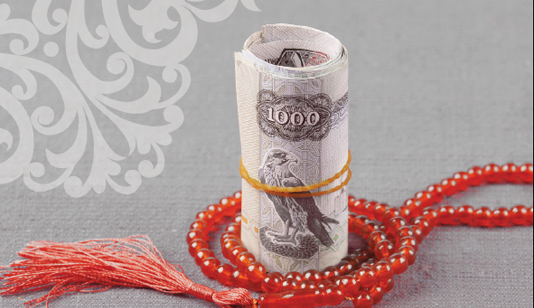As the popularity of Islamic finance increases
Do we have enough knowledgeable experts?
More people are looking to banks to seek finance or funding, and borrowers can now choose between traditional and Islamic banks. The current trend for more entrepreneurial endeavours and self-employment may be due to the lack of job opportunities in struggling economies, especially the Arab Spring countries.
So the question is just how big is this thirst for knowledge about Islamic finance, and how many economists, bankers and specialists deal in this particular field?
A recent study was published about the trend for Islamic banking by professional consultants and specialists in the Islamic economy and Islamic financial transactions.
Emirati newspaper, Al-Bayan, featured the results of a study conducted by Progress Institute for Training and Consultancy in Dubai that showed a lack of knowledgeable advisers in this domain.
Nowadays, Islamic banks are expanding in non-Arabic, and even non-Muslim countries. For example, the United Kingdom has become the first non-Muslim country to issue Sukuk and Islamic bonds in July 2014. The £200m ($307m) bond sale, which coincided with Ramadan, was heavily oversubscribed by investors in the UK, Middle East and Asia, attracting orders of £2.3bn – ten times higher than the amount sold.
The Dow Jones showed that the Sukuk Total Return Index (Ex- Reinvestment) delivered a total return of 6.37% in 2014 Fixed Income Indices for S&P Dow Jones Indices, outperforming its 0.23% gain in the prior year as announced by CPI Finance. Many financial institutions and banks have announced that a similar step will be taken before the end of this year such as in Hong Kong, and South Africa, Luxembourg, Tokyo-Mitsubishi Bank, Société Générale and Goldman Sachs.
The world right now needs to study the precise rules of Islamic finance in light of the scarcity and shortage of specialists – and this is where the Progress Institute for Training and Consultancy in Dubai has stepped in.
What is different about Islamic finance is that its regulations do not allow compound interest as expressed by Said Nada, General Manager of the Institute. According to Mr Nada, it was viewed with interest when Hong Kong issued its first Sukuk at $1 billion, and two-thirds of investors are from outside the Muslim world. It is clear that the study of Islamic finance is in the interest of all investors, Muslim or otherwise.
How important is ethical banking to potential customers?
BRAVE, a communications and brand agency run by three women from England and Australia, reached out to 500 nationally representative respondents in the UAE (those from the region, western expats and Asian expats) to research Islamic banking. To undertake this research project, BRAVE worked in partnership with On Device Research agency to find out how people from different cultural backgrounds viewed Islamic and ethical banking.
The key research findings were about the expectations of Islamic banking service where 60% of respondents stated that their expectation of service was higher for Islamic banks than traditional banks.
Regarding the attitudes of expats towards Islamic Finance, the Brave Index showed that the number one priority was a tailored rewards credit card (45%) followed equally by an expat focused package and advertising targeted specifically at ME at 32%.
And to respond to the question of whether late payment fees given to charity would change their mind, 46% said that it would definitely change their attitude to Islamic banking, with 30% saying that it might have an impact.
Another important finding of this research was that consumers would be more open to use Islamic banking if they understood the concept, such as bank to offer the lowest profit rates (37%), bank to be socially conscious (28%), and bank to invest profits into ethical investments (26%).
The report clearly shows that there is an opportunity for Islamic banks to focus on educating the market on the ethical and philanthropic differentiators of Islamic banking, as respondents indicated that it would make such a bank much more appealing to them.



























